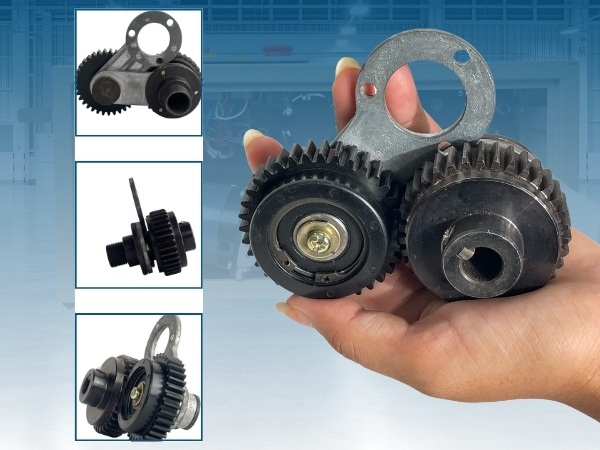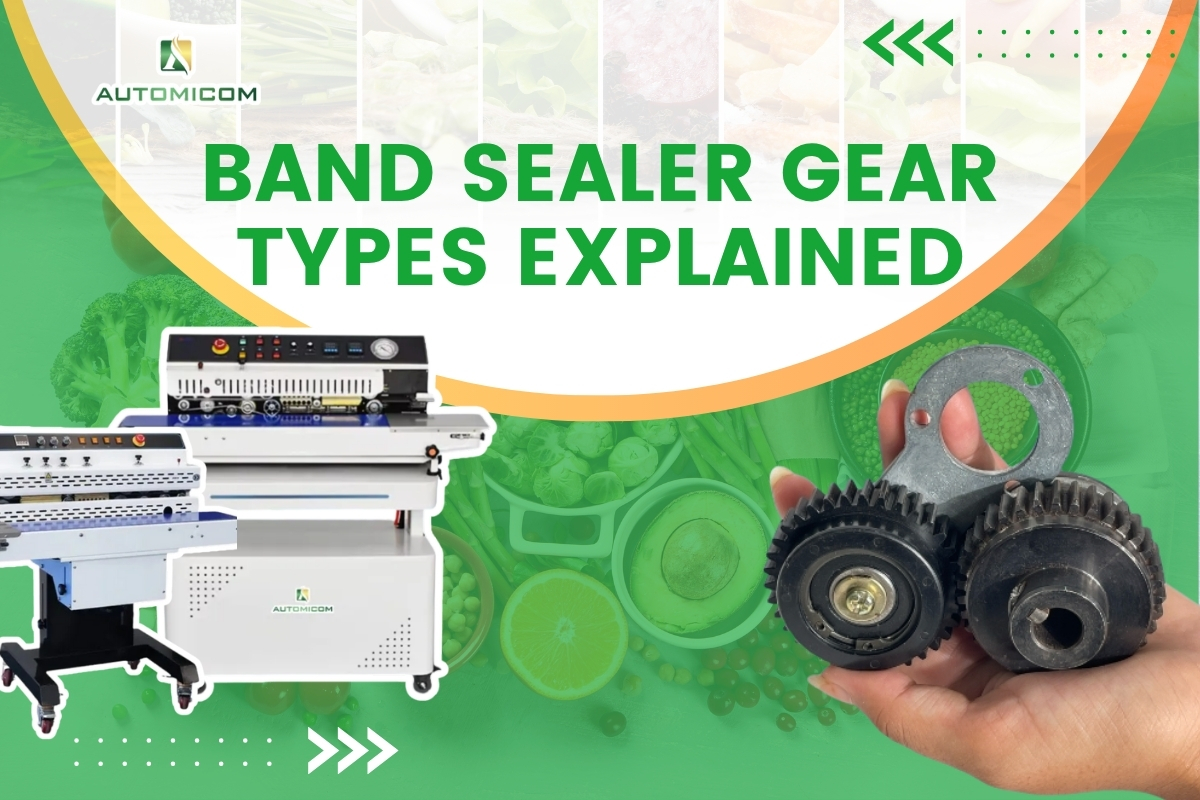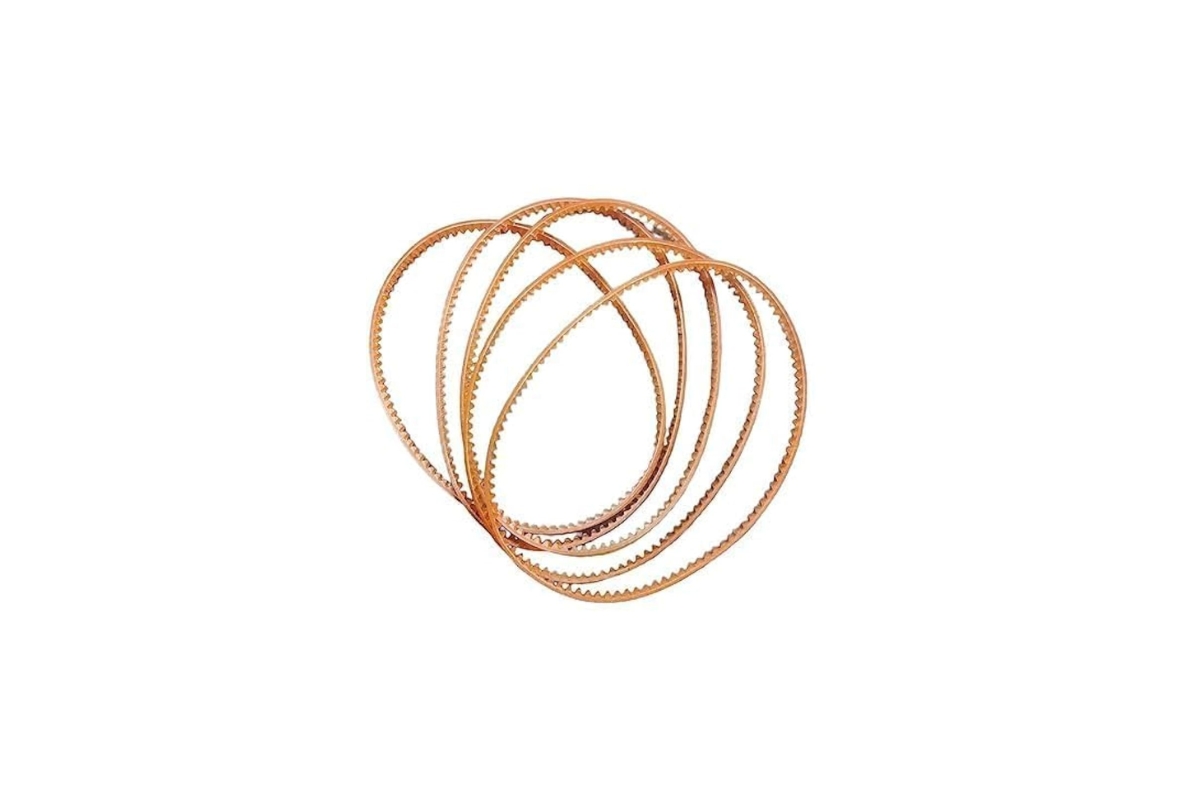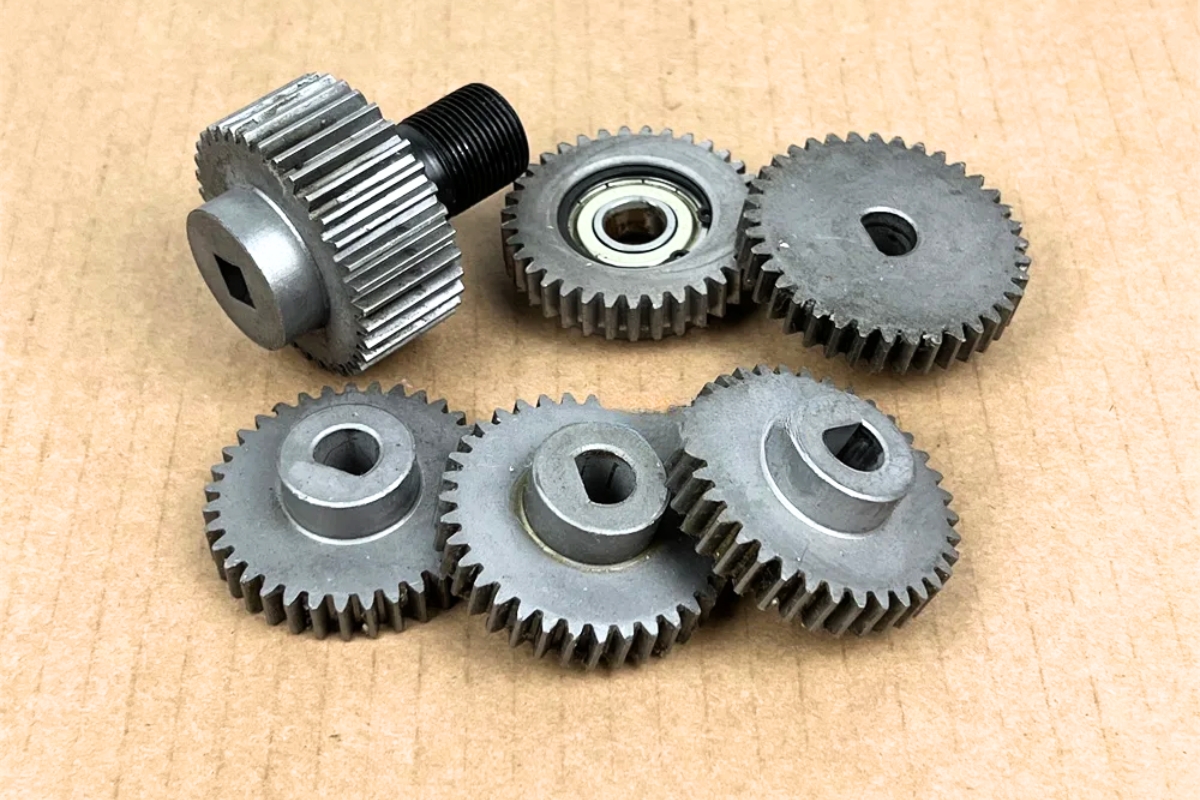No products in the cart.
New
Band Sealer Gear Types Explained
Band Sealer Gear Types Explained
INTRODUCTION OF GEAR TYPES
When you choose a band sealer, the gear type directly affects how efficiently it performs. The gear drives the sealing belt, controls pressure, and ensures steady operation. Its material also shapes the band sealing machine’s durability, performance, and maintenance needs.
There are three main gear types: metal, nylon, and iron. Metal gears provide strength and balance for regular production. Nylon gears work quietly and cost less for light use. However, iron gears deliver unmatched endurance for nonstop industrial sealing.
Furthermore, each gear impacts speed, stability, and sealing quality differently. Meanwhile, nylon suits small businesses, metal fits medium workloads, and iron handles heavy-duty use. Also, the right choice reduces downtime and improves product consistency.
Therefore, choosing the proper gear keeps your band sealing machine efficient and long-lasting. Finally, let’s explore how each gear type shapes the performance and price of a band sealer.
BAND SEALER: METAL GEAR – BALANCED DURABILITY AND PERFORMANCE

Metal gears combine zinc, aluminum, and brass to create a strong and flexible structure. This blend gives every band sealer reliable strength, smooth performance, and high resistance to wear.
- Performance:
Metal gears run smoothly and keep the sealing belt moving evenly without vibration or jerks. This steady motion improves sealing quality during long hours of continuous operation. Furthermore, their stable design helps the band sealing machine maintain consistent heat and speed. - Durability:
Metal gears handle moderate pressure and heat with ease. Also, they work efficiently in small or medium factories that need long-lasting sealing performance. - Maintenance:
Operators clean and adjust them quickly because the gears resist deformation. Therefore, users save time and reduce repair costs. - Price Range:
Mid-level pricing fits growing businesses. Mean while, metal gears cost less than iron but more than nylon. However, they deliver strong value for daily production. Finally, they remain the ideal choice for users who seek dependable, durable, and affordable operation.
BAND SEALER: NYLON GEAR – LIGHTWEIGHT AND COST-EFFECTIVE
Nylon gears use high-strength plastic materials that give every band sealer a light and quiet operation. Their low noise, smooth motion, and affordable cost make them popular choices for entry-level band sealing machines.
- Performance:
Nylon gears run quietly and smoothly, which helps shops and packaging areas maintain a pleasant working environment. Furthermore, their lightweight design reduces strain on the motor and improves sealing consistency. - Durability:
Nylon gears resist corrosion and rust effectively. Also, they handle light sealing tasks well but wear faster under continuous or heavy loads. Therefore, they suit small packaging operations that work with light materials and limited volumes. - Maintenance:
Operators replace nylon gears easily and spend little on upkeep. Meanwhile, regular checks keep the gears running smoothly every day. - Price Range:
The most economical option. However, nylon gears cannot handle high-speed or nonstop production. Finally, small businesses choose them for low-cost, reliable sealing performance.
BAND SEALER: IRON GEAR – HEAVY-DUTY POWER AND LONG LIFE
Iron gears use cast iron or hardened steel to give every band sealer unmatched strength and stability. These solid materials handle heavy loads and long production hours with ease. Furthermore, their sturdy design supports continuous sealing in demanding industrial environments.
- Performance: Iron gears deliver powerful torque and steady transmission. They maintain sealing consistency even at high speed. Also, they operate efficiently under extreme pressure and heat, keeping the band sealing machine stable during nonstop production.
- Durability: Iron gears resist heat, pressure, and wear better than any other type. Therefore, they keep their shape and alignment even after thousands of sealing cycles.
- Maintenance: Operators spend little time maintaining iron gears. Meanwhile, occasional lubrication keeps movement smooth and prevents friction buildup.
- Price Range: The most expensive option. However, the cost matches their endurance and long-term reliability. Finally, factories and packaging plants choose iron gears for unbeatable power and lifespan.
COMPARISON OF THE THREE GEAR TYPES
| Feature | Nylon Gear | Metal Gear | Iron Gear |
| Material Composition | Reinforced nylon plastic | Zinc–aluminum alloy | Cast iron or hardened steel |
| Temperature Range | 0 – 80 °C | 0 – 150 °C | 0 – 250 °C |
| Load Capacity | Up to 15 kg continuous | Up to 40 kg continuous | Over 60 kg continuous |
| Operating Speed | 0 – 10 m/min | 0 – 16 m/min | 0 – 20 m/min |
| Expected Lifespan | 3 – 6 months (light use) | 12 – 18 months | 24 – 36 months |
| Noise Level | < 60 dB | 65 – 70 dB | 70 – 75 dB |
| Heat Resistance | Low | Medium | Very high |
| Maintenance Frequency | Every 2 – 3 months | Every 4 – 6 months | Every 6 – 12 months |
| Best Application | Small packaging shops | Medium-scale production | Industrial 24/7 operations |
CHOOSING THE RIGHT BAND SEALER FOR YOUR BUSINESS
Always start by identifying your sealing needs, production scale, and available budget. Each gear type supports different workloads and durability levels.
Nylon Gear Band Sealer:
Works best for light-duty or occasional packaging. Furthermore, it offers quiet operation and low maintenance. Ideal for small shops or startups needing an affordable and simple sealing solution.Metal Gear Band Sealer:
Delivers steady sealing quality and stronger power. Also, it fits medium-scale businesses that run regular production. Therefore, it provides a balanced mix of cost, performance, and reliability.Iron Gear Band Sealer:
Handles continuous, heavy-duty sealing with maximum strength. Meanwhile, it supports long shifts and large-volume packaging. However, the higher price reflects its industrial-grade durability and performance.Final Tip:
Always match your machine’s capacity with your daily sealing demand. Finally, choose a band sealing machine that grows with your business and ensures long-term productivity.
FIND OTHER SEALING MACHINE HERE: Link
FIND OTHER HORIZONTAL BAND SEALER: Link





